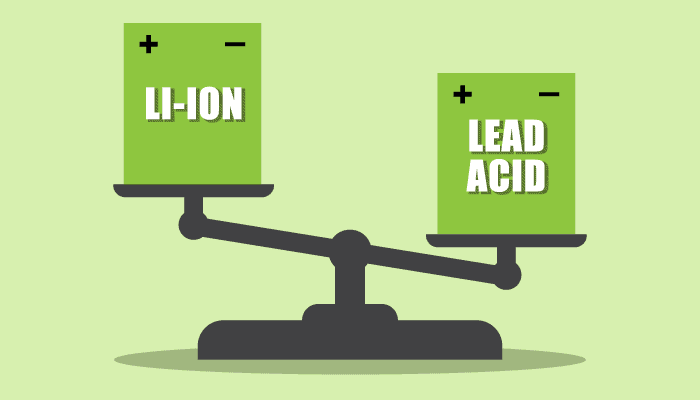Forklift batteries are evolving rapidly with advancements in technology. The two most commonly used types are lead-acid and lithium-ion batteries. Each has distinct features, making them suitable for different applications.
- Lead-Acid Forklift Batteries
- Cost-Effective: Lead-acid batteries are more affordable upfront, making them a popular choice for budget-conscious operations.
- Reliable for Heavy Duty: These batteries are robust and capable of delivering consistent power, even in demanding conditions.
- Maintenance Requirements: They require regular watering, cleaning, and equalization charges to ensure a long service life.
- Longer Charging Times: Typically, lead-acid batteries need 6-8 hours to charge and additional time to cool down.
- Lithium-Ion Forklift Batteries
- Fast Charging: Lithium-ion batteries can charge fully in just 1-2 hours, significantly reducing downtime.
- Higher Efficiency: They offer a higher energy density, providing longer runtime with less weight.
- Maintenance-Free: Unlike lead-acid batteries, lithium-ion batteries do not require watering or regular maintenance.
- Longer Lifespan: They can last 2-3 times longer than lead-acid batteries, justifying their higher initial cost.
Choosing between these two types depends on factors like operational needs, budget, and desired efficiency. For operations that prioritize low downtime and maintenance, lithium-ion is the go-to option, while lead-acid remains a trusted choice for cost-effective solutions.


